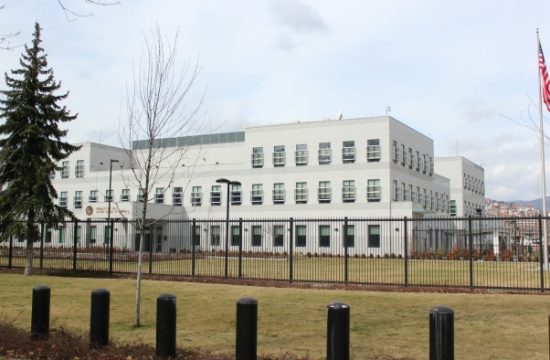The Friday stopping of a state-organized migrant convoy by local police of a canton in Bosnia seems to be a “serious communication breakdown” in the security system of the country, and if the officers were informed of the convoy in due time, they might have breached the Constitution, political analyst Srecko Latal told N1.
State institutions had organized the transport of some 270 migrants, who had arrived in Sarajevo after crossing the border into Bosnia on their route towards Western Europe, towards an asylum centre in Salakovac, near the southern city of Mostar which lies in the Herzegovina-Neretva canton (HNK).
The canton’s police stopped the buses as they approached their area of responsibility, insisting they return to Sarajevo.
After a substantial quarrel between the local and the state authorities, the buses proceeded towards the centre but the developments had angered officials in Sarajevo who said that the HNK Interior Ministry had defied government-level institutions and therefore committed a grave crime.
State Security Minister, Dragan Mektic, said the HNK Interior Ministry was informed of the migrant convoy a day earlier. He said that, to him, the actions of the HNK Ministry seem in line with a “coup.”
“The key issue here is whether the Interior Ministry of HNK was informed or not,” said Latal.
If the Ministry was told about the convoy, “this could be a serious breach of the Constitution and security system,” Latal said.
“We should wait for the results of the investigation, so we know what happened, why the convoy was stopped. To base analyses on speculation is not good,” he said.
The commissioner who gave the officers the order to stop the convoy, Ilija Lasic, was called in to explain himself to the State Police Friday evening.
The main Croat political party, the Croatian Democratic Union (HDZ), which is in power in Mostar, issued a press release saying the city of Mostar had no agreement with the Council of Ministers, Bosnia’s government, regarding the accommodation of the migrants in Salakovac.
The HDZ said that the decision to send the migrants to that centre was made by “irresponsible individuals within the Security Ministry and the Ministry of Displaced Persons and Refugees”, and that “such a scenario was though up in order to destabilize the area.”
Latal said that the migrant issue is a reality, and that if a country’s administration is able and prepared to deal with the issue, “I don’t see a reason why they would destabilize the country”.
“It is up to us,” he said.
Bosnia is, however, destabilized by its systems and divided society, the analyst said.
Referring to the developments, the President of Bosnia’s Serb-dominated semi-autonomous Republika Srpska (RS) entity, Milorad Dodik, said his government would not allow for any migrant centre to be formed on RS territory, even if state institutions in Sarajevo would decide so.
“The issue that comes up is whether any country can function without cooperation of its services,” the analyst said about Dodik’s statement.




